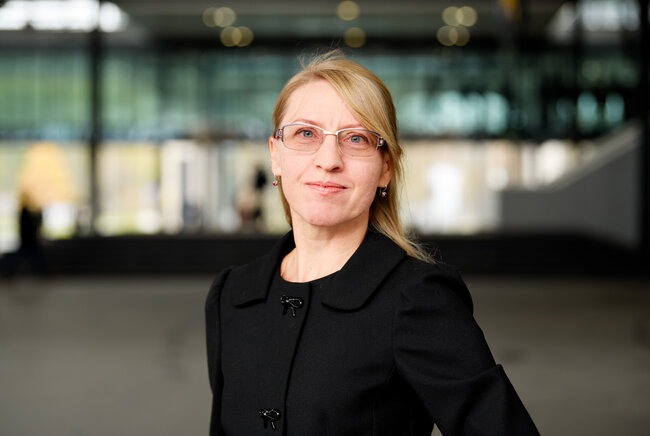
Svetlana Obydenkova holds a PhD from Eindhoven University of Technology (TU/e), obtained in 2023. She has an MSc in Energy Technology and Sustainable Fuels Economy and is an environmental engineer with over ten years of experience in environmental impact assessment, feasibility analysis, and life cycle assessment. Currently, she is the technical leader of the sustainability package in two European projects, including CARBIOW, and a teacher at Maastricht University.
From her point of view, the main challenge for Aachen-Maastricht Institute for Biobased Materials (AMIBM) within CARBIOW project is assessing a value chain that does not yet exist:
“The CARBIOW project aims to convert the organic fraction of municipal solid waste, such as food waste, into marine and aviation fuels. Giving a second life to waste is a core principle of the circular economy. However, the approach used to create value from waste must reduce environmental, societal, and economic pressures. To ensure the sustainability of this emerging value chain, we must account for numerous factors and related uncertainties”, says Svetlana Obydenkova.
For instance, Norway, where the project is based, already processes all its food waste, with biogas being one of the byproducts. “Therefore, to ensure that the CARBIOW value chain outperforms existing ones, we must consider not only the environmental, societal, and economic benefits of the new value chain but also the consequences of diverting waste from its current applications”, she states.
In terms of CARBIOW’s main added value, she believes that CARBIOW will become a flagship for best practices in food waste valorization, providing significant value to regions that currently neglect their food waste by incinerating or landfilling it:
“There are a few existing options to treat food leftovers, such as anaerobic digestion and industrial composting. Despite years of experience, these methods still have significant drawbacks, including high capital and operational costs for biogas production and the relatively low value of fertilizer produced by industrial composters. CARBIOW, however, targets hard-to-decarbonize sectors like aviation and maritime transportation. We must overcome challenges related to waste logistics, since we are optimizing the entire model to benefit from economies of scale”, she explains.
Aachen-Maastricht Institute for Biobased Materials (AMIBM)
The Aachen-Maastricht Institute for Biobased Materials (AMIBM) is a European, cross-border, research institute focusing on the development of advanced biobased materials. AMIBM designs, creates and translates biobased molecules, processes and materials into applications that outperform in functionality and sustainability for better living. It is in the Netherlands and conducts innovative fundamental, applied and translational research by creating synergies between academia and industry.
The AMIBM vision is to provide the missing links between fundamental, applied and translational research in the field of biobased materials, by changing the relationship between the production of biobased materials and the value chain. This will be achieved by developing an integrated, interdisciplinary research program focusing on novel strategies to produce advanced biobased materials and chemical building blocks in a sustainable and economical manner, and to develop these novel materials into innovative products for technical and medical applications.
AMIBM has several research groups, including Sustainability of Materials, which is the one involved in CARBIOW project. They are responsible for the sustainability assessment of the CARBIOW value chain, from waste to biofuels for the aviation and maritime industries.